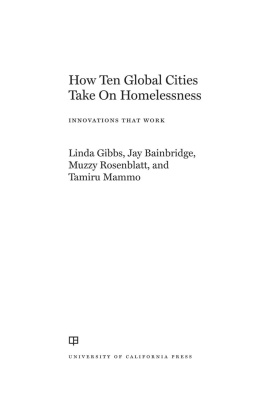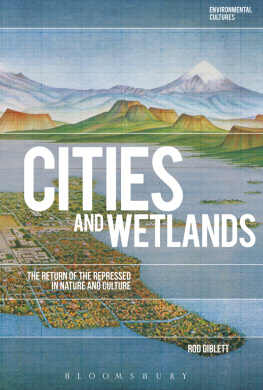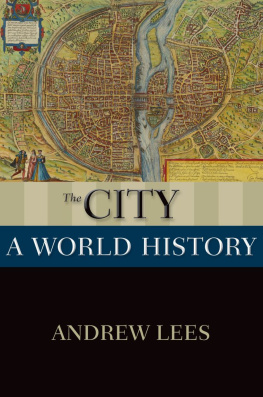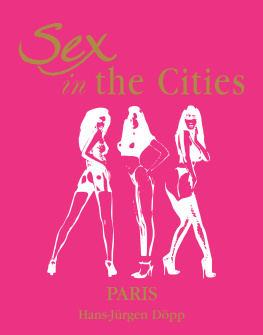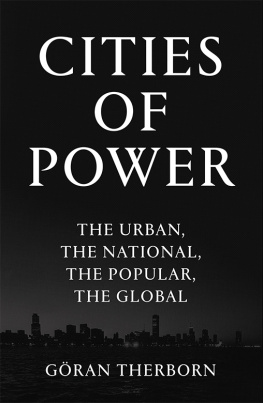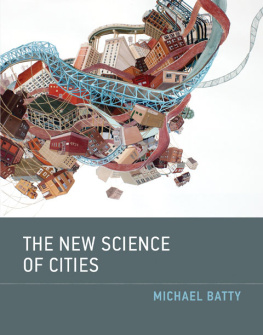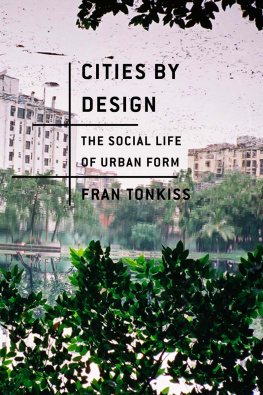First published 1979 by Transaction Books
Published 2020 by Routledge
2 Park Square, Milton Park, Abingdon, Oxon OX14 4RN
605 Third Avenue, New York, NY 10017
First issued in hardback 2020
Routledge is an imprint of the Taylor & Francis Group, an informa business
Copyright 1979 by The French-American Foundation and The Council for International Urban Liaison.
All rights reserved. No part of this book may be reprinted or reproduced or utilised in any form or by any electronic, mechanical, or other means, now known or hereafter invented, including photocopying and recording, or in any information storage or retrieval system, without permission in writing from the publishers.
Notice:
Product or corporate names may be trademarks or registered trademarks, and are used only for identification and explanation without intent to infringe.
Library of Congress Catalog Number: 78-66205
New York: A View from the Seine by Eli Ginzberg used by permission of New York Affairs 1979 New York University.
Cold Comfort: The New French Towns by Ada Louise Huxtable, copyright 1978 by The New York Times Company. Reprinted by permission.
Cover photo of Crteil by Garth Huxtable.
Cover photo of New York by Arthur Tress.
ISBN 13: 978-1-138-53373-8 (hbk)
ISBN 13: 978-0-87855-749-3 (pbk)
DOI: 10.4324/9780429335617
The publication which follows can only in small part describe the many levels of dialogue between American and French urban practitioners at the Paris-New York: Two World Cities Conference held May 2427, 1978 in Paris. The dialogue begun on the Ile Saint-Louis continues today on both sides of the Atlantic. Since this was the first meeting of its kind, new professional associations were formed and lines of communication opened which will bear fruit long after the conference ended. The distribution of this publication to urban specialists in both countries, and the presentation of conference conclusions and recommendations at professional urban gatherings will also focus attention on the struggles of New York and Paris to survive as world cities in the face of draconian social and economic change. Word of the conference has already reached over a million New York Times readers around the world through the series of articles prepared by Ada Louise Huxtable who attended the conference as an observer.
The French-American Foundation and the Fondation Franco-Amricaine wish to thank Edward J. Logue and Jean-Louis Subileau, Chairmen of the American and French Delegations, respectively; Professor Jean Gottmann, Head of the School of Geography at Oxford University; and the many friends of the two foundations whose enthusiastic support and sustained work made the conference a success. Our special appreciation goes to Mayor Jacques Chirac of Paris, his Deputy, Maurice Doublet, and the Atelier Parisien dUrbanisme. We are particularly indebted to the Exxon Corporation and the German Marshall Fund, of the United States, for their generous conference grants, as well as to the Ford Foundation, Air France, Avis Rent A Car System, Inc., Elizabeth and Anastassios Fondaras, the Council for International Urban Liaison, the North American Urban Liaison Office, and the staff of the Bibliothque Polonaise in Paris.
And we in New York are particularly grateful to our urban planning friends in Paris for their ingenuity in finding ways to help that beautiful city flourish, yet remain Paris.
Arthur King Peters, Chairman The French-Amerian Foundation New York | Pierre Jouven, Chairman Fondation Franco-Amricaine Paris |
* * *
The Council for International Urban Liaison (CIUL) is an international clearing house for the exchange of practical experience in urban problem-solving among local government professionals. CIUL publishes Urban Innovation Abroad, Urban Transit Abroad, the Urban Edge, covering developing nations, and book-length studies focusing on single issues of common concern to local government practitioners. It sponsors meetings, seminars and study tours to identify significant trends and share approaches among practicing professionals seeking to provide better service delivery and to improve the quality of urban life.
The Councils Board of Trustees includes:
International City Management Association (ICMA)
National Association of Counties (NACO)
National League of Cities (NLC)
United States Conference of Mayors (USCM)
Federation of Canadian Municipalites (FCM)
National Association of Housing and Planning Officials (NAHRO)
National Governors Association (NGA)
American Public Works Association (APWA)
Council for International Urban Liaison 818 18th St., N.W. Washington, D.C. 20006 Tel: (202) 223-1434 | John Garvey, Jr., President Jean Mestres, Program Officer George G. Wynne, Director of Communications, Editor |
* * *
The French-American Foundation is a non-profit operating foundation working to strengthen relations between the United States and France. Its program, which focuses on projects in Communications and Education, brings together French and American professionals to address problems of major concern to both societies and to reduce misperceptions which impede each countrys understanding of the other. Projects take the form of: specialist exchanges, internships, surveys, special studies, conferences and doctoral research fellowships.
The Foundation began operations early in 1976 with grants from three former Ambassadors to France: C. Douglas Dillon, Amory Houghton and John N. Irwin II. Its French counterpart, the Foundation Franco-Americaine was organized a short time later. Both bi-national foundations work together toward their common objectives.
The French-American Foundation
680 Park Avenue
New York, N.Y. 10021
Arthur King Peters, Chairman and President
Edward Hallam Tuck, Secretary and Counsel
James Chace, Treasurer
Constance C. Jewett, Executive Director
Cynthia S. Kass, Assistant
* * *
The publication of this volume was made possible by a grant from the German Marshall Fund of the United States. The Fund, a Memorial to the Marshall Plan, is a private, U.S. tax-exempt, grant making institution. It was established by a gift from the Federal Republic of Germany in appreciation of American post-war recovery assistance, and it assists individuals and organizations in the study and resolution of problems common to industrial societies.


